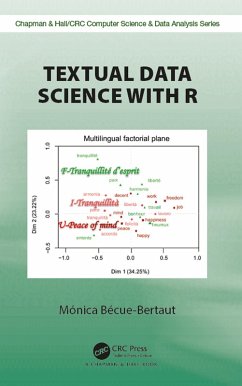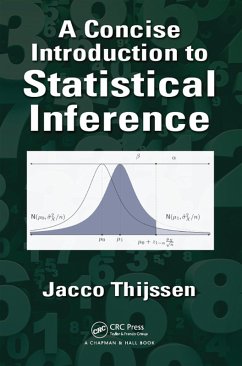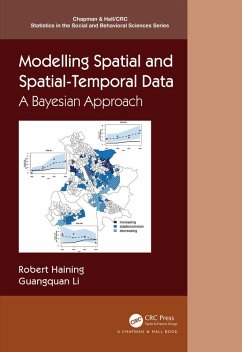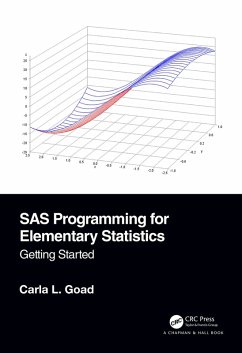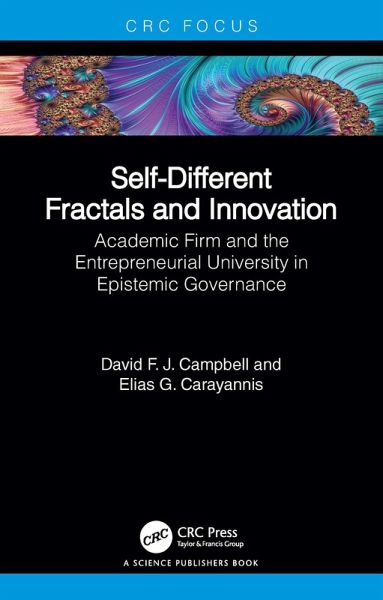
Self-Different Fractals and Innovation (eBook, PDF)
Academic Firm and the Entrepreneurial University in Epistemic Governance
Versandkostenfrei!
Erscheint vor. 19.09.25
42,95 €
inkl. MwSt.
Unser Service für Vorbesteller - dein Vorteil ohne Risiko:
Sollten wir den Preis dieses Artikels vor dem Erscheinungsdatum senken, werden wir dir den Artikel bei der Auslieferung automatisch zum günstigeren Preis berechnen.
Weitere Ausgaben:

PAYBACK Punkte
21 °P sammeln!
The presented ideas create and shape the vision of a "Manifesto of Higher Education Governance".Fractals are typically understood as self-similar structures, but this concept is expanded to include "self-different fractals". These fractals align with a "Philosophy of Dialectics", where opposing forces (thesis and antithesis) can either create disruption or, when managed effectively, drive creativity, innovation, and development. Because self-different fractal systems operate in multiple modes, they hold greater potential for fostering innovation.This conceptual exploration investigates innovat...
The presented ideas create and shape the vision of a "Manifesto of Higher Education Governance".
Fractals are typically understood as self-similar structures, but this concept is expanded to include "self-different fractals". These fractals align with a "Philosophy of Dialectics", where opposing forces (thesis and antithesis) can either create disruption or, when managed effectively, drive creativity, innovation, and development. Because self-different fractal systems operate in multiple modes, they hold greater potential for fostering innovation.
This conceptual exploration investigates innovation in higher education through dialectical approaches, presenting the entrepreneurial university as a thesis, the academic firm as an antithesis, and epistemic governance as a synthesis. Epistemic governance plays a key role in motivating innovation by integrating pluralistic knowledge and innovation modes.
The concept of "self-different fractal innovation systems"-structures that embody multiple, interacting modalities-enhances innovation potential through their fluid complexity. Good and effective governance of these systems encourages continual knowledge evolution, enabling the development of "next-knowledge". This process, guided by the dialectics of innovation, forms new, integrated structures and networks.
The book emphasizes interdisciplinary and transdisciplinary approaches, with the latter involving collaboration between scholars and user communities for real-world impact. It bridges science and art, suggesting that visual representations of self-different fractals inspire artistic research alongside scientific inquiry. Through examining both linear and non-linear systems, the authors reveal how conflicting principles can generate productive chaos, ultimately driving innovation, societal progress and knowledge democracy.
The future of governance is also the future of higher education.
Fractals are typically understood as self-similar structures, but this concept is expanded to include "self-different fractals". These fractals align with a "Philosophy of Dialectics", where opposing forces (thesis and antithesis) can either create disruption or, when managed effectively, drive creativity, innovation, and development. Because self-different fractal systems operate in multiple modes, they hold greater potential for fostering innovation.
This conceptual exploration investigates innovation in higher education through dialectical approaches, presenting the entrepreneurial university as a thesis, the academic firm as an antithesis, and epistemic governance as a synthesis. Epistemic governance plays a key role in motivating innovation by integrating pluralistic knowledge and innovation modes.
The concept of "self-different fractal innovation systems"-structures that embody multiple, interacting modalities-enhances innovation potential through their fluid complexity. Good and effective governance of these systems encourages continual knowledge evolution, enabling the development of "next-knowledge". This process, guided by the dialectics of innovation, forms new, integrated structures and networks.
The book emphasizes interdisciplinary and transdisciplinary approaches, with the latter involving collaboration between scholars and user communities for real-world impact. It bridges science and art, suggesting that visual representations of self-different fractals inspire artistic research alongside scientific inquiry. Through examining both linear and non-linear systems, the authors reveal how conflicting principles can generate productive chaos, ultimately driving innovation, societal progress and knowledge democracy.
The future of governance is also the future of higher education.
Dieser Download kann aus rechtlichen Gründen nur mit Rechnungsadresse in A, B, BG, CY, CZ, D, DK, EW, E, FIN, F, GR, HR, H, IRL, I, LT, L, LR, M, NL, PL, P, R, S, SLO, SK ausgeliefert werden.




